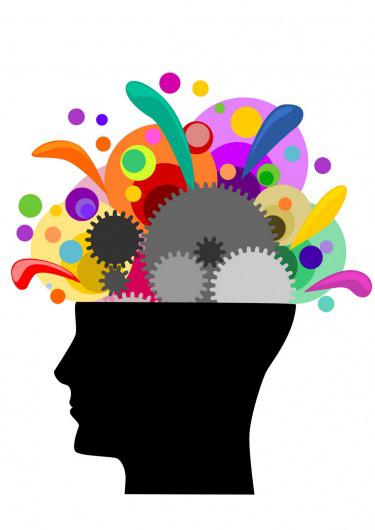 The brain releases dopamine when we approach a reward, and serotonin when we get respect. Oxytocin gives us a good feeling when we trust, and endorphin makes us feel good when we’re injured. These happy chemicals evolved to do a job, not to surge all the time.
The brain releases dopamine when we approach a reward, and serotonin when we get respect. Oxytocin gives us a good feeling when we trust, and endorphin makes us feel good when we’re injured. These happy chemicals evolved to do a job, not to surge all the time.
We can build new neural pathways to turn on our happy chemicals in new ways with the help of Social media like Facebook and Twitter.
“Dopamine is the stuff that gets released into our brains when we do fun and exciting things like fall in love, have sex, go skydiving, take crystal meth… hmm… ok maybe skip the last one. But you get the drift. Dopamine makes the brain go “Wheee! Rewards! Pleasure! Let’s do this! Woohoo!”
Studies have shown that we get a double dose of dopamine when we use social media: first when we self-disclose (i.e. talk about ourselves, share our thoughts & opinions, post narcissistic pictures, etc) and then again when people react and interact with us.
Oxytocin, on the other hand, is the same hormone that’s released when you kiss or hug. This is why it’s sometimes referred to as “the cuddle chemical.” And apparently this little jolt of hugalicious joy spikes when you’re tweeting. ” – Chinie Diaz, Fab After Forty
Serotonin is released when we get recognition or acceptance from others. Getting several Likes and positive comments on Facebook, or when our tweets gets re-tweeted or become a trending topic in Twitter sorts of boosts our self-worth and we get the feeling of being admired or getting respect.
When noone reacts to your posts or tweets? Our brain releases endorphins to combat some of the frustrations. Stress and pain are the two most common factors leading to the release of endorphins.Endorphins interact with the opiate receptors in the brain to reduce our perception of pain and act similarly to drugs such as morphine and codeine. In contrast to the opiate drugs, however, activation of the opiate receptors by the body’s endorphins does not lead to addiction or dependence.
However, if there are happy chemicals, there are also unhappy or sad chemicals. One example is cortisol. Cortisol, the discomfort chemical, is the brain’s emergency chemical. It is released in the face of a survival threat. The point behind cortisol is to make us feel uncomfortable. Big bursts of cortisol is what we call “fear”. Smaller bursts, anxiety. These bad feelings tell us we are in immediate danger. This is important because it motivates us to move towards comfort. Cortisol is often experienced in the form of stress, anger and even pain which is something similar to what we feel when we are bullied online.
Too much sorrow may not produce a substantial amount of endorphins to combat the release of cortisol, thus the cause of sudden rebellious tantrums and temperaments like the instances of cursing or swearing on our Facebook Status, or tweeting furiously against an enemy – worst is suicidal attempts or tendencies.
Just like happy chemicals, unhappy chemicals will always be part of our life. The brain needs unhappy chemicals to steer away from bad things just as much as it needs happy chemicals to steer toward good things.
Our brain likes to do things that trigger happy chemicals immediately, and it hates to give up things that triggered them in our past. Unfortunately, there’s no delete button in our brain. The memories, however suppressed, will always be there aiding on the release process.
Ever since the introduction of social media, we now enjoy, or fear, a historical reference or “timeline” that anyone could get back into and revive the feelings of both “happiness” and “sadness”. Is it a good thing that these moments of our lifetime are now shared with almost everyone else via social media?
Let us be extra careful with what we post online. Too much of anything will always be bad for anyone. Being too engrossed with social media have its positive aspects, but some of the involvement may result to an unbalanced chemical reaction that could lead into either an elated or depressed ego.

